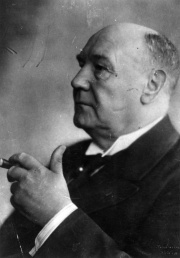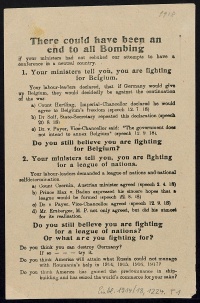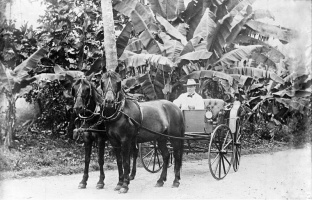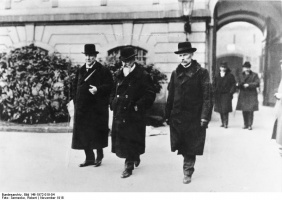Early Life and Career↑
Wilhelm Solf (1862-1936) studied Indology and law and spoke several Asian and European languages. He joined the German Foreign Office in 1888, serving in Calcutta (British India) and Dar es Salaam (German East Africa). When Germany established a new colony in Samoa in 1900, Solf was appointed as its first governor, a position he held until 1911.
Colonial Secretary↑
Solf was offered the post of Colonial Secretary as a result of the political crises that followed the Second Morocco Crisis in 1911. While he continuously campaigned for a ban of interracial marriages and only very tentatively modified German colonial policy, he propagated a “reformed image” of German colonialism and undertook official visits to all German, and several British, colonies in Africa. With the backing of the Chancellor Theobald von Bethmann Hollweg (1856-1921) and Foreign Secretary Gottlieb von Jagow (1863-1935), Solf also pursued a policy of Anglo-German cooperation in colonial matters, which culminated in the Anglo-German Convention of 1913 on the future division of the Portuguese colonies in Africa.
After the beginning of hostilities in August 1914, Solf initially called for neutrality for European colonies in Africa based on the General Act of the Berlin Conference of 1885 (the “Congo Treaty”). Nonetheless, as an imperial politician, he welcomed the opportunity the war provided to expand the German colonial empire. He supported Bethmann Hollweg in his September Programme, shaping and promoting its policy on German war aims in Africa (“Mittelafrika”). For Europe, Solf lobbied for a much more restrained war aim policy, especially towards Belgium, and, throughout the war, pushed for peace negotiations.
Foreign Secretary and later Life↑
On 3 October 1918, Wilhelm Solf was appointed Foreign Secretary, while remaining Colonial Secretary, in the government of Chancellor Max von Baden (1867-1929). Regarded as trustworthy by the western allies, Solf played a vital role in the armistice negotiation - exchanging notes with Woodrow Wilson (1856-1924) - while he simultaneously tried to prevent revolution in Germany. Despite his efforts, he ultimately failed in both as he could neither secure an “honorable peace” nor preserve the monarchy. After the abdication of Wilhlem II, German Emperor (1859-1941), Solf continued to serve in the government of Friedrich Ebert (1871-1925) before resigning both positions on 13 December 1918 in conflict with Hugo Haase (1863-1919); he remained acting head of the Colonial Office until February 1919.
During his subsequent tenure as Germany’s first post-war Ambassador to Japan (1920-1928) he significantly improved the cultural and political relationship between the two countries. Beginning in 1933, Wilhelm Solf, his wife Johanna Solf (1887-1954), and their daughter Lagi Solf (1909-1955), were early and active opponents of the Nazi government. Solf died in Berlin in 1936.
Daniel Steinbach, King’s College London
Section Editor: Mark Jones
Selected Bibliography
- Hatton, P. H. S.: Harcourt and Solf. The search for an Anglo-German understanding through Africa, 1912-14, in: European History Quarterly 1/2, 1971, pp. 123-145.
- Hempenstall, Peter J. / Mochida, Paula Tanaka: The lost man. Wilhelm Solf in German history, Wiesbaden 2005: Harrassowitz.
- Kundrus, Birthe: Das Reichskolonialamt zwischen nationalem Geltungsbewusstsein und Weltbürgertum. Die Staatssekretäre Friedrich von Lindequist und Wilhelm Solf, in: Heyden, Ulrich van der / Zeller, Joachim (eds.): '... Macht und Anteil an der Weltherrschaft'. Berlin und der deutsche Kolonialismus, Münster 2005: Unrast, pp. 14-21.
- Vietsch, Eberhard von: Wilhelm Solf. Botschafter zwischen den Zeiten, Tübingen 1961: Rainer Wunderlich Verlag.











